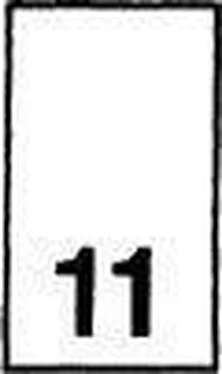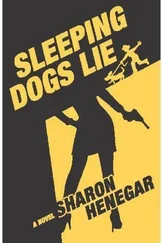He walked up the street opposite the store, holding it in his peripheral vision. There was more to it now. There was a restaurant on one side with lights on but drawn curtains, and a big CLOSED sign in the window. The store that he remembered was dark. As he walked, the street began to take on an unreal quality, as though it were part of an old, familiar dream, the changes that time had made in it no more important than the little alterations his mind made when he invoked a landscape to contain his explorations in a dream. Once again he was walking alone on a dark street, clearing his mind and relaxing his muscles for the moment when he would need to decide and act faster than others could. This life should have been over long ago.
Disconnected bits of memory began to merge as he walked. Eddie Mastrewski must have been about forty on the winter day in Cleveland when they had sat in the car and watched the man walking through the snow toward the parking lot, and had both realized that if Eddie used his gun someone would hear. Eddie had leaned down to zip up his rubber boots over the cuffs of his pants, whispering “Aw shit, Aw shit” to himself more than to the boy. Then he had said, “It has to be now. Tomorrow he’ll know, and then nobody will ever get near him.” So Eddie chased the man down and killed him quietly with a tire chain. He came back red, sweating and gasping for breath, his eyes bulging as he started the car. “I’m too old for this,” he had said. The boy had said nothing. Eddie hadn’t been entirely serious, but from the boy’s position in the front seat next to him, watching his big chest heaving under the heavy overcoat, and the bloated cheeks inflating as he blew out air, it had seemed true. Eddie had lasted a long time in the trade, and by now he had come to understand what that meant. Nobody could go on for thirty years now. It had been a generation that had something more than strength and stamina. They had some kind of animal stupidity, something that made them unaware of the pointlessness of going on. Some of the men who had dialed the telephones in the early 1950s and heard Eddie’s cheerful, resonant baritone sing “Eddie the Butcher” over the wire were still at it: wizened, desiccated old skeletons, still studying the changing configurations of people and money to discern a pattern that would give them another way to steal. Eddie, younger than they were, was long dead.
Eddie had been a butcher, and the shop hadn’t been a simple disguise. It was part of Eddie’s homemade philosophy that a false identity was always a transparent, amateurish ruse. He had raised the boy in the butcher shop, first teaching him to sweep and wash the floors, then to care for the gleaming knives and saws, then finally to use them himself, as though Eddie had expected him to follow that trade rather than the other one. But Eddie hadn’t thought things through clearly. He simply taught the boy what he knew, some of it nonsense and some of it useful. Sometimes the long days in the shop came back to him now.
“I never knew a man named Earl that you could trust. For some reason they’re all thieves.”
“Why?”
“I don’t know why. But knowing it gives you an edge, because they don’t know you know.”
He had taught the boy the skills of the butcher shop, but Eddie had never imagined that in such a short time butchers would become as anachronistic as blacksmiths. Now only the rich bought their meat from a real butcher. The shops were like boutiques, and the only reason customers came was because they had the illusion that the prices they paid made the chemicals and hormones disappear from the meat. All the butchers worked for big meat-packing plants now and punched time clocks and belonged to the meat cutters’ local. They couldn’t accept part-time work that might take them out of town any time they got a telephone call. Eddie had lived to see the beginning of this change. He would notice that some of his old customers drove past the shop on the way to the supermarket. He would shake his head as though the small profit he made from the shop mattered to him. “You know what those bastards charge for a chicken? Two dollars a pound. When I was your age I could get laid for two dollars.”
“Did you?”
“Hell, no. You think the clap is a joke?”
Ackerman turned and crossed the street two blocks down. The only way to approach the restaurant without letting anyone get behind him was to enter through the loading dock. Eddie had taught him to clear his mind and spend a few minutes in calm, dispassionate meditation before he committed himself. “You look, you wait, you think. Then, if it’s doable, you think again. Do you know how you’re going to get out if your first plan gets blown?”
Eddie would have taken him past the restaurant and let him look at it. “Once you’re in, you’re like an egg in a frying pan. You got two seconds to get in, see him and pop him. You got three seconds to get across the floor while they’re wondering if you want them next. You got maybe a second to get out the door. You stand still more than a second at any step, you heat up and fry.”
But this wasn’t Eddie’s kind of job. Eddie would not have understood why he was here. Eddie’s philosophy was, above all, cautious. There were only smart and stupid; Eddie had never understood the word audacity. When he had heard the word applied to Napoleon on television, he had thought about it for a moment and then said it meant pressing your luck. Eddie would have told him he was a fool to come back to New York, but he’d had no choice. He had returned only because there was no practical way for him to stay alive but this. He had to kill the man who possessed the secret knowledge that he had been in England.
If Antonio Talarese had already told the others, they would have insisted on sending someone more formidable than the three hastily armed leg breakers he had seen at Brighton. Obviously Talarese had decided that the chance of a sudden coup was worth the risk. Ackerman still had a hope that he had arrived in New York before the news that Mario Talarese was dead.
As he moved down the narrow alley into the parking lot, he could see that he was much later than he had thought. The telephone call from England had already come. A hearse was parked behind the store, probably waiting to meet the body at the airport. He stood still and looked at it, but there was no sign of the driver. The funeral home must be owned by one of Antonio Talarese’s friends. The driver would be a relative of the owner, a volunteer who had been invited inside with the others for a glass of grappa or anisette to help pass the time while they waited for the plane.
He was all the way back in the old life now, feeling his heart trying to beat stronger, harder, but finding he was still able to keep it slow. Eddie had taught him about noises by making him watch the cat in the butcher shop. If the cat made a sound, it would wait minutes before it moved again. The boy had learned that he could do the same. If his foot dislodged a stone or a board creaked, he rested and waited. In the early days when he had first worked alone, he had sometimes counted to an arbitrary number before moving again. It didn’t matter what the number was, so long as he had waited beyond a human sense of time before he made another noise. Now, even after ten years of inactivity, he was still too good at it to have to think about it. He moved along the side of the building to the loading dock, rolled onto it, waited and listened.
He could hear low voices inside the building. They were coming from the back of the restaurant. He could see them in his imagination, sitting in the kitchen.
“Eat?” said a man’s voice that he placed low and near the wall. “How am I supposed to eat? It’s almost two o’clock in the morning, and I feel like this is my fault.”
Читать дальше












